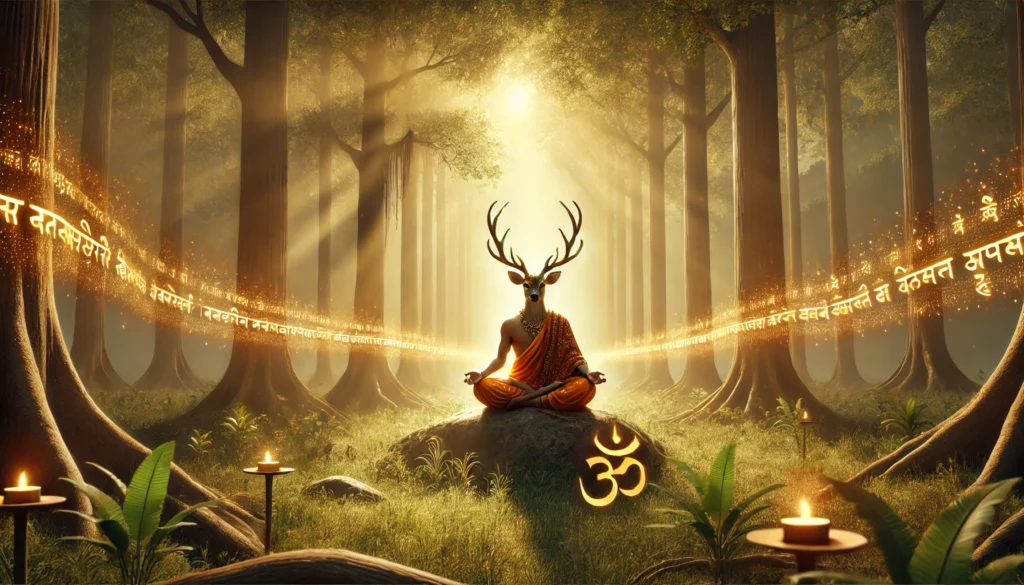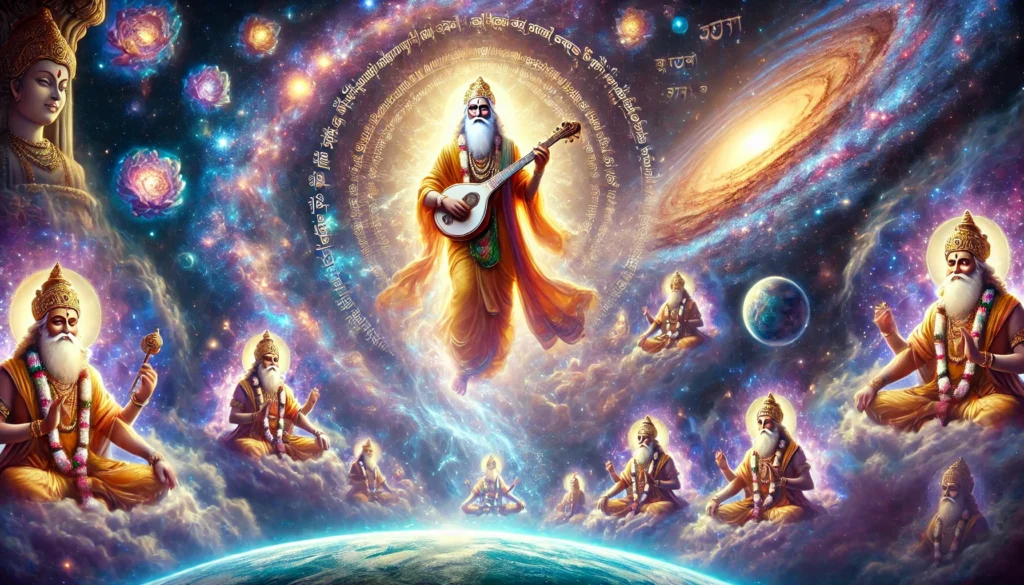What if death is not the end but merely a pause in the journey of the soul? This profound question lies at the heart of Hindu philosophy, particularly the concept of punarjanma—reincarnation. Enveloped in tales of karmic justice and spiritual evolution, Hindu mythology offers awe-inspiring narratives that illuminate the soul’s eternal cycle through birth, death, and rebirth. These stories don’t just fascinate; they provide deep insights into life’s purpose and the nature of existence.
In this article, we’ll journey through some of the most captivating reincarnation stories in Hindu mythology. Along the way, we’ll uncover the philosophy behind reincarnation, explore the role of karma, and extract universal truths that resonate even in modern times.
The Philosophy of Reincarnation in Hinduism
Reincarnation, or punarjanma, is a cornerstone of Hindu belief. It represents the soul’s journey through multiple lifetimes, guided by the principles of karma and moksha. In this cycle of birth, death, and rebirth—known as samsara—every action (karma) influences the soul’s future existence.

The Connection Between Karma and Rebirth
Hindu philosophy divides karma into three categories:
- Sanchita Karma: The accumulated karma from all previous lives.
- Prarabdha Karma: The portion of accumulated karma that influences the current life.
- Kriyamana Karma: The karma being created in the present moment.
The Bhagavad Gita explains this process succinctly:
“वासांसि जीर्णानि यथा विहाय।
Just as one discards old clothes for new ones, so does the soul discard its worn-out body for a new one.” (Bhagavad Gita 2.22)
The ultimate aim of reincarnation is moksha, liberation from the cycle of rebirth. This spiritual freedom is achieved when the soul transcends all karma, uniting with the divine.
Jaw-Dropping Reincarnation Stories
Hindu mythology brims with reincarnation stories that reveal the profound impact of karma and the soul’s quest for higher purpose. Here are some tales that will leave you spellbound.
1. King Bharata’s Rebirth: A Lesson in Attachment
King Bharata, a wise and just ruler, renounced his throne to seek spiritual liberation. Yet, his attachment to a deer in his hermitage distracted him during his final moments. As a result, he was reborn as a deer in his next life. However, his spiritual awareness persisted, allowing him to evolve spiritually even in this form. Ultimately, Bharata was reborn as a human sage, fully devoted to attaining moksha.
Lesson: Even noble intentions can falter if overshadowed by attachment.

2. Sage Narada’s Past Lives: Devotion Above All
The celestial sage Narada was once a mortal who, through steadfast devotion to Lord Vishnu, transcended his karma and achieved a celestial form. His story emphasizes the transformative power of devotion (bhakti), which can override karmic debts and elevate the soul.
Lesson: Devotion can be a direct path to liberation.
3. The Pandavas and Draupadi: Rebirth for a Divine Purpose
The epic Mahabharata reveals that the Pandavas and Draupadi were divine beings reincarnated to fulfill celestial duties. For instance, Arjuna was the rebirth of Nara, a sage and companion of Vishnu, while Draupadi embodied the energy of the goddess Shri.
Lesson: Rebirth can be a divine intervention to restore cosmic balance.
4. Vishnu’s Dashavatara: The Evolution of Consciousness
Lord Vishnu’s ten incarnations, known as the Dashavatara, depict the soul’s evolution through various stages of consciousness—from the aquatic Matsya (fish) to the enlightened Kalki (savior). These avatars symbolize the progression of life and the soul’s ultimate journey towards divine perfection.
Lesson: The soul evolves through stages of growth and understanding.
5. Shanti Devi: A Modern-Day Reincarnation Story
In the 20th century, Shanti Devi, a girl from Delhi, recalled vivid details of her past life in a village miles away. Her accounts were so accurate that they were verified by researchers, making her story one of the most documented cases of reincarnation.
Lesson: Rebirth transcends mythology, finding echoes in real-life experiences.

Karmic Cycles and Their Role in Rebirth
Karma operates as the unseen force governing reincarnation. Hindu epics like the Mahabharata are replete with examples of karmic consequences shaping the destinies of characters.
Examples from the Mahabharata
- Drona and Ashwatthama: Drona’s actions as a teacher and warrior led to karmic repercussions for his son, Ashwatthama, who was cursed with immortality.
- Karna: Despite his virtuous nature, Karna’s loyalty to adharma (unrighteousness) due to his associations shaped his tragic fate.
These stories underscore the importance of mindful living, as every deed ripples through lifetimes.
Symbolism and Universal Truths in Reincarnation Stories
Reincarnation tales aren’t merely narratives; they are rich in symbolism and spiritual teachings.
Allegorical Meanings
- King Bharata’s Story: Reflects the dangers of misplaced attachments, even in a spiritual path.
- Dashavatara: Represents the evolution of life and consciousness.
Comparative Insights
Hinduism’s reincarnation philosophy finds parallels in:
- Buddhism: Emphasizes breaking free from samsara through enlightenment.
- Jainism: Highlights karma’s influence on the soul’s liberation.
Western Thought: Concepts of past lives and spiritual progression resonate with modern metaphysics.

Conclusion
The reincarnation stories of Hindu mythology serve as timeless reminders of the soul’s journey and the power of karma. They urge us to live consciously, embracing moral and spiritual growth. As you reflect on these tales, consider:
“If every action shapes our next life, what legacy are we creating today?”
FAQs
1. What is reincarnation in Hindu mythology?
Reincarnation, or punarjanma, is the soul’s cycle of rebirth influenced by karma, with the ultimate goal of achieving moksha.
2. What are famous reincarnation stories in Hinduism?
King Bharata’s rebirth, Sage Narada’s past lives, the Pandavas, and Vishnu’s Dashavatara are some notable examples.
3. How does karma affect rebirth?
Karma—actions from past and present lives—determines the circumstances of the soul’s next existence.
4. Are there modern examples of reincarnation?
Yes, cases like Shanti Devi’s provide contemporary evidence aligning with reincarnation beliefs.
